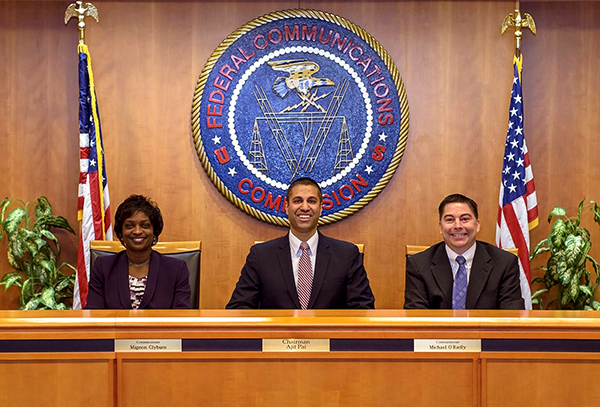In the run up to the FCC’s vote that ultimately eliminated net neutrality, the regulator revealed that it had experienced a distributed denial of service (DDoS) attack that prevented users from commenting but conveniently left the rest of the site perfectly accessible. In what is likely no surprise to anyone, this has been revealed as completely false with the FCC now blaming “design issues” that were hidden by the previous administration.
“Beginning on Sunday night at midnight, our analysis reveals that the FCC was subject to multiple DDoS attacks. These were deliberate attempts by external actors to bombard the FCC's comment system with a high amount of traffic to our commercial cloud host. These actors were not attempting to file comments themselves; rather they made it difficult for legitimate commenters to access and file with the FCC,” reads the original statement posted by the regulator.
A report from the inspector general’s office (OIG) has outed this as a lie constructed by the FCC, which states that investigations have turned up “no evidence” of a DDoS attack based on “identical requests, identical user-agents, or large waves of simultaneous activity.” This has supposedly been corroborated by FBI records, as the intelligence agency has no such knowledge of an attack.
“The May 7-8, 2016 degradation of the FCC’s ECFS (Electronic Comment Filing System) was not, as reported to the public and to Congress, the result of a DDoS attack. At best, the published reports were the result of a rush to judgment and the failure to conduct analyses needed to identify the true cause of the disruption to system availability. Rather than engaging in a concerted effort to understand better the systematic reasons for the incident, certain managers and staff at the Commission mischaracterized the event to the Office of the Chairman as resulting from a criminal act, rather than apparent shortcomings in the system.”
It turns out that comedian John Oliver has become something of a new scapegoat for the regulator, alongside “design issues” hidden through inaccurate information given to director Ajit Pai by the Obama-appointed administration that came before him.
When net neutrality was still up for debate, John Oliver commented on the political climate during an episode of Last Week Tonight, urging those that oppose the repeal to comment on the Federal Communications Commission’s (FCC) website. The FCC has implied that the ‘flash crowd’ created by waves of viewers attempting to comment had somehow overwhelmed the site, causing the “degradation of ECFS.”
You can visit https://t.co/IO1tIHnfBU and urge the FCC to keep strong net neutrality rules backed by Title II.
— John Oliver (@iamjohnoliver) May 8, 2017
Pai spoke up about the matter, attempting to assure that Leo Wong, senior strategic advisor Tony Summerlin and deputy chief information officer Christine Calvosa had emphasised “that this incident had been caused by bots rather than individuals attempting to file comments with the Commission.” He further pointed the finger at employees that didn’t step to correct the announcement that was made.
“I'm also disappointed that some working under the former CIO apparently either disagreed with the information that he was presenting or had questions about it, yet didn't feel comfortable communicating their concerns to me or my office,” explains Pai. “On the other hand, I'm pleased that this report debunks the conspiracy theory that my office or I had any knowledge that the information provided by the former CIO was inaccurate and was allowing that inaccurate information to be disseminated for political purposes.”
While Pai is confident that things have been put to rest now that the information is out there for all to consume, he doesn’t quite shed light on the true origin of the lie. No matter who is to blame, however, a contractor previously employed by the regulator during this time has revealed that “The FCC did not respond to the event internally in a manner consistent with the severity of the event as stated in the press release.”
KitGuru Says: Given Pai’s statement has been released before the publication of the report, it’s obvious that the FCC is attempting damage control. This should be no surprise to anyone, but it is wholly disappointing regardless.
 KitGuru KitGuru.net – Tech News | Hardware News | Hardware Reviews | IOS | Mobile | Gaming | Graphics Cards
KitGuru KitGuru.net – Tech News | Hardware News | Hardware Reviews | IOS | Mobile | Gaming | Graphics Cards



